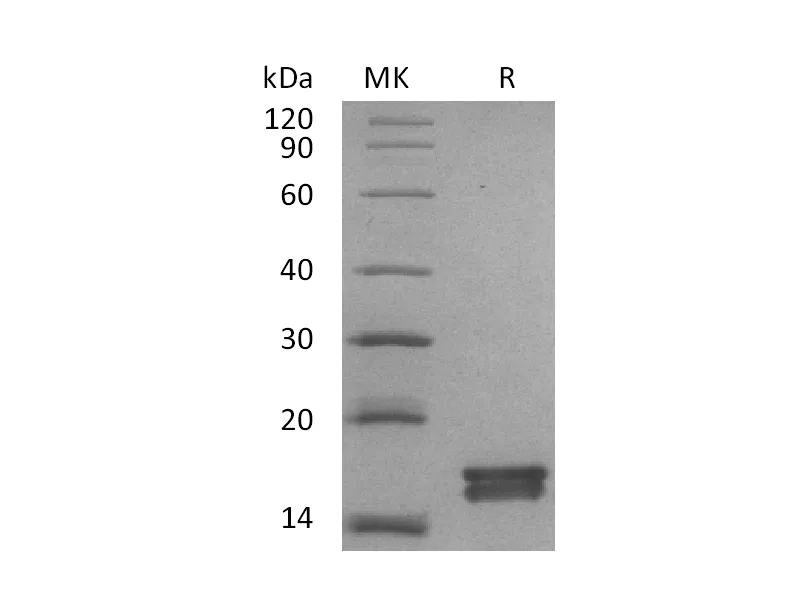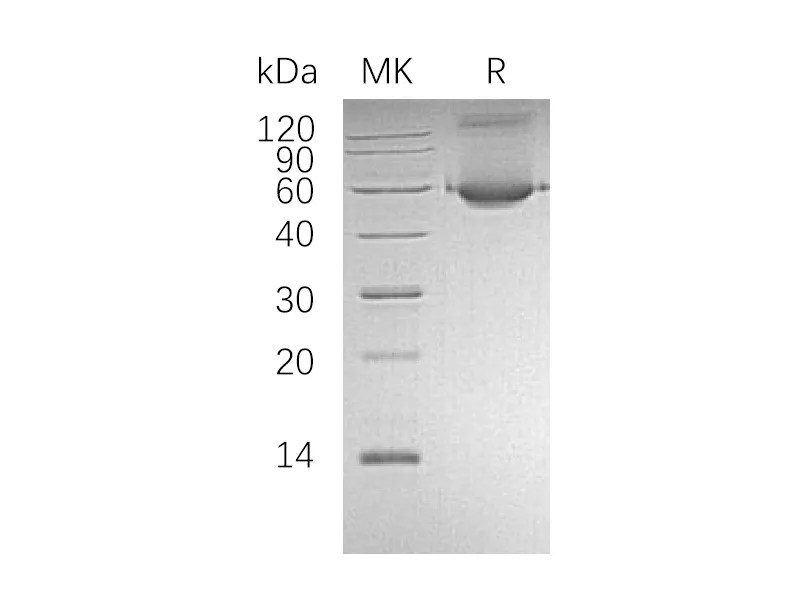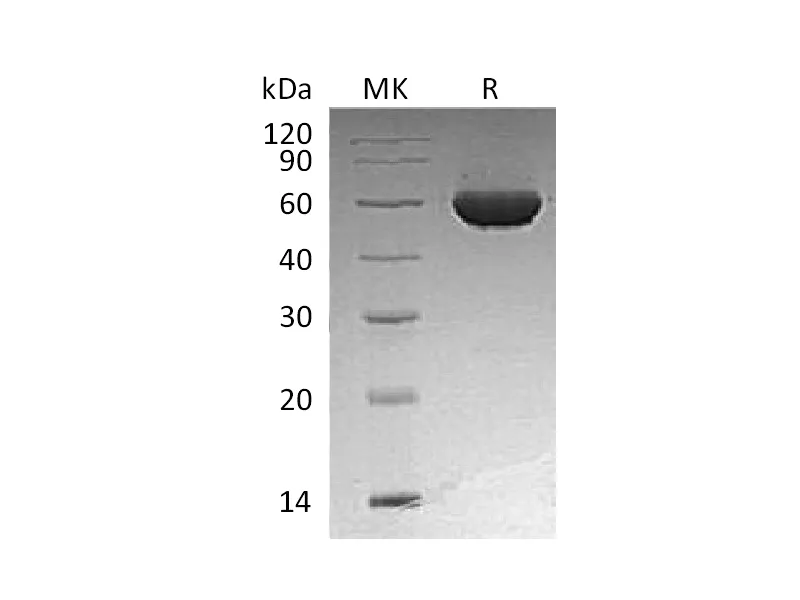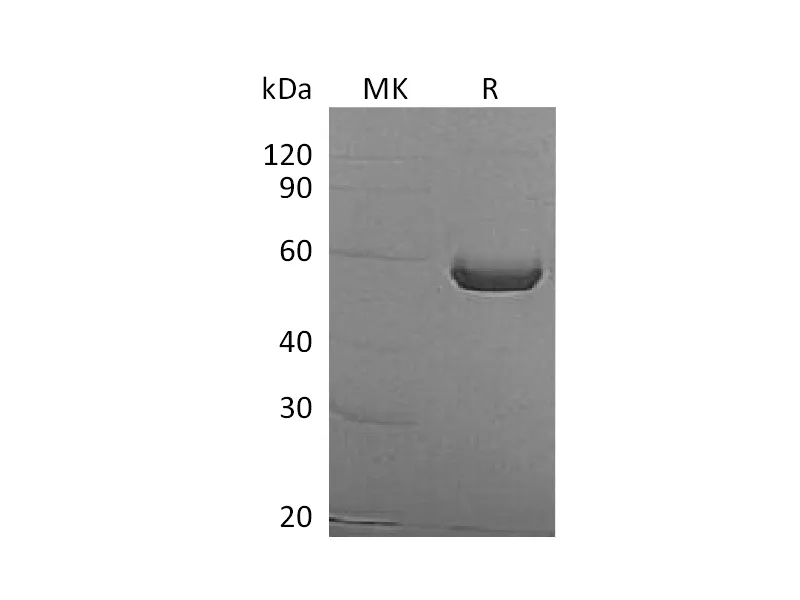Alternative Names
MHC Class I Polypeptide-Related Sequence A; MIC-A; MICA; PERB11.1
Background
MHC Class I Polypeptide-Related Sequence A (MICA) is a transmembrane glycoprotein that functions as a ligand for human NKG2D. Unlike classical MHC class I molecules, MICA does not form a heterodimer with beta-2-microglobulin. MICA shares 85% amino acid identity with a closely related protein, MICB. MICA acts as a stress-induced self-antigen that is recognized by NK cells, NKT cells, and most of the subtypes of T cells. As a Ligand for the KLRK1/NKG2D receptor, MICA binds to KLRK1 leads to cell lysis. MICA functions as an antigen for gamma delta T cells and is frequently expressed in epithelial tumors. MICA antigens are able to elicit the synthesis of alloantibodies in transplant recipients. Studies have shown that anti-MICA antibodies are associated with acute renal allograft rejection and failure. MICA recognition is involved in tumor surveillance, viral infections, and autoimmune diseases.
Note
For Research Use Only , Not for Diagnostic Use.




